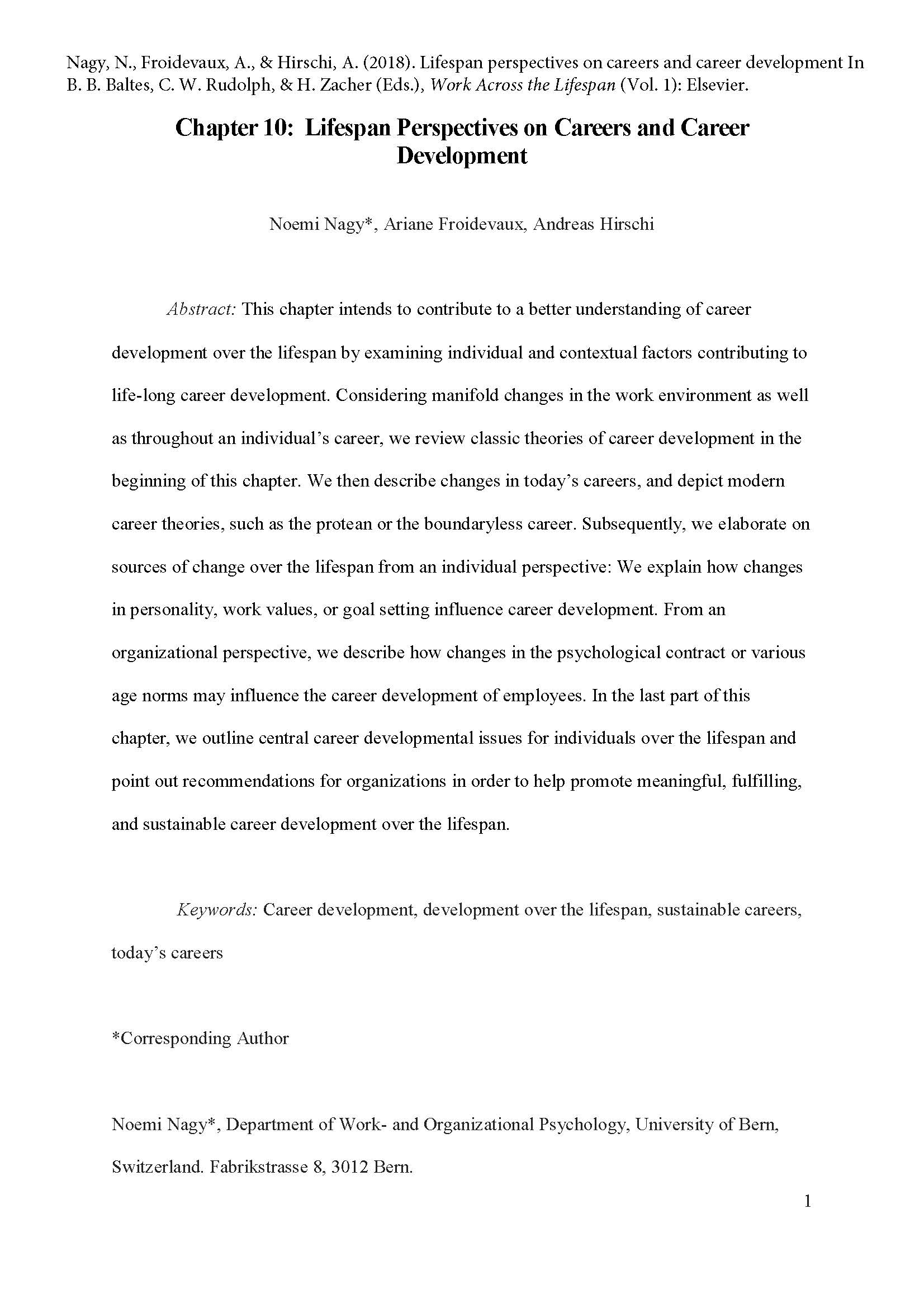The multidimensional nature of career self-management behaviours and their relation to facets of employability
Andreas Hirschi
Wilhelm, F., Hirschi, A., & Schläpfer, D. (2024). The multidimensional nature of career self‐management behaviours and their relation to facets of employability. Journal of Occupational and Organizational Psychology, 97(1), 342-375.
Abstract
Career self-management (CSM) has attracted increased scholarly interest, but definitional issues and the lack of an integrative understanding constrain research on the topic. In two studies, we seek to clarify the nature and dimensionality of CSM behaviour, examine the relation of specific dimensions to the general construct and investigate the relation of different CSM behaviours to facets of employability. In Study 1, we used a systematic literature review and thematic analysis to identify seven key CSM behaviours: (a) impression management, (b) building contacts, (c) using contacts, (d) human capital development, (e) goal setting and planning, (f) self-exploration and (g) mobility-oriented behaviour. Across two samples in Study 2 (combined N=1065), we examined the relation of the seven behaviours to the general CSM construct and their relation to facets of employability in a time-lagged analysis. The results show that CSM behaviours are best modelled as a bifactor structure with a general dimension and seven specific behaviours. Specific CSM behaviours explained unique variance in specific facets of employability. In sum, the studies clarify our understanding of CSM's nature, dimensionality, structure, and nomological net.
Keywords: career management, career proactivity, employability, proactive career behaviour



